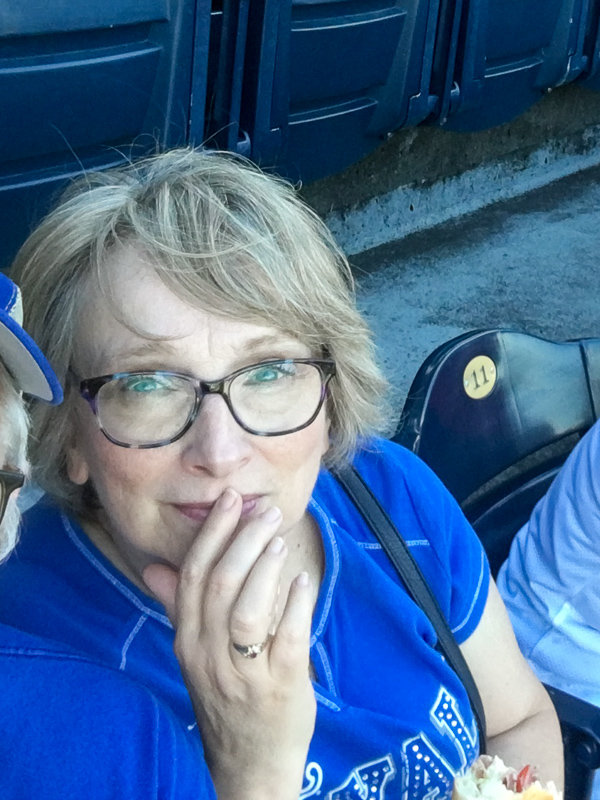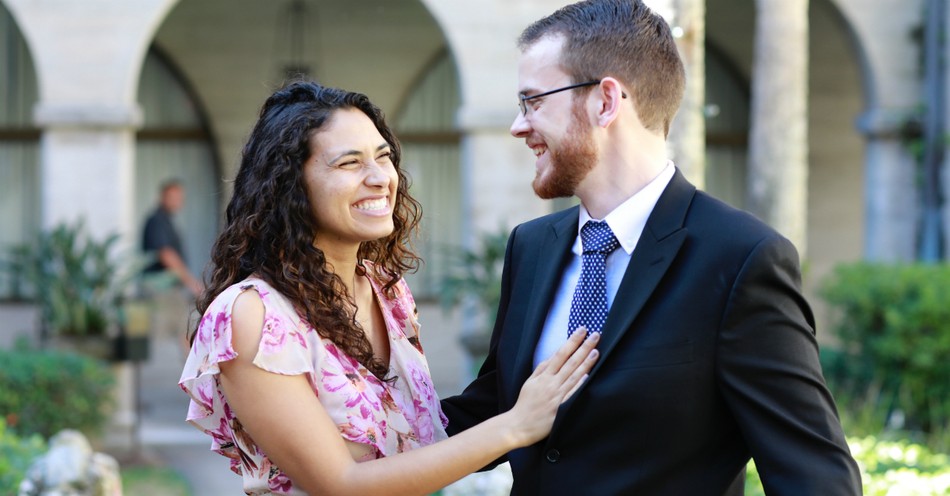I am a pushover for Cinderella stories with a dash of intrigue. The biblical story of Ruth and Boaz is all of that and more. Inspiring to Christians, single or married, this love story displays God’s sovereignty over difficult circumstances in every stage and season of life. Woven throughout, God’s lovingkindness shines in each detail.
The book of Ruth, found in the Old Testament, is one of the few Bible stories told from a woman’s viewpoint. It’s backdropped by famine, cross-cultural marriage, and tragedy. Inspired by deep loyalty, two widowed women in different seasons of life join to make a journey across boundaries.
Destitute, empty-handed, and alone, the unseen Sovereign Hand of a faithful Father guided their footsteps. Boaz and Ruth’s inspiring story moves from despair to hope and foreshadows Jesus’ own redemption for us.
What Happens in the Story of Ruth and Boaz?
Ruth shows her love by putting her mother-in-law’s needs above her own. She searched for a way to support them both. Mosaic law provided for those less fortunate by ensuring some of the crops were left from the harvest (Leviticus 19). The edges of the fields provided food to be gathered by those in need.
Ruth found a field where she could work picking up grain the harvesters left behind. She began early in the day and labored through the day, taking only a short break.
Boaz, a man of wealth and influence in the community, owned the field. News had already spread about the Moabite’s kindness and loyalty when he went there that day, a young woman, dusty and hot, bent over gathering sheaves of leftover grain.
“Who’s that?” he asked his servant.
When Boaz met Ruth, her story already predisposed him to kindness and affectionate regard. He offered her protection, water, and extra grain. He invited her to share his meal and cautioned his workers to treat her well.
Perhaps his heart moved with compassion because he himself was the product of a story of redemption. Boaz was a descendant of the Canaanite Rahab who once hid Joshua and the spies, rescuing her and her family from destruction. Both Ruth and Boaz are found in Jesus’ genealogy in the first chapter of Matthew. Both came into Judaism from the outside.
Neither Ruth nor Boaz seemed to recognize Boaz’s position as a kinsman-redeemer in the beginning. As described in Leviticus 25, the kinsman-redeemer possessed the requirements for redemption of the land for Naomi. The position was a relational rescuer, someone able to restore what had been lost.
Naomi was delighted when she saw Ruth’s bounty and heard about her day gleaning.
“That man is our close relative; he is one of our guardian-redeemers,” she exclaimed (Ruth 2:20 NIV).
It is very possible her match-making instincts went into overdrive.
Now, the question lay with Boaz. Would he be willing to act as kinsman-redeemer, and did he have the financial means to do so?
What Happened to Ruth Before She Met Boaz?
Even before Ruth met Boaz, her story of devotion honored God. Little did Ruth know how her actions on the road to Bethlehem toward her mother-in-law would endear her to the heart of Boaz, a man she hadn’t yet met.
The story begins with Ruth’s deceased husband’s mother, Naomi. Living in a pagan country away from her beloved Bethlehem, Naomi lost first her husband Elimelech and then both her sons Mahlon and Chilion. Naomi’s heart broke with grief. Few fates could be worse for a woman at that time than to be left without a husband or sons. It signified the loss of income, position, and support.
“Don’t call me Naomi,” she said to those who had known her before. Call me Mara, because the Almighty has made my life very bitter. I went away full, but the Lord has brought me back empty” Ruth 1:20-21 NIV.
Orpah and Ruth, her son’s wives, pledged themselves to return with her to Bethlehem, the place she’d once called home. Although Naomi convinced Orpah, to return to her village, Ruth could not be dissuaded.
Ruth’s poignant plea goes straight to the heart. “Don’t urge me to leave you or to turn back from you. Where you go I will go, and where you stay I will stay. Your people will be my people and your God my God” Ruth 1:16 NIV.
Her declaration promised faithfulness not only to the mother of her deceased husband but to another people and to the One True God. Such profound loyalty eventually brought Ruth to be named in the genealogy of Jesus Christ.
How Ruth and Boaz Can Inspire Christian Couples
Ruth and Boaz’s lovingkindness toward others is an inspiration for couples today. The Hebrew word, hesed, brings abundant reward into their romance. Translated into English as love, mercy, faithfulness, loyalty, goodness, and lovingkindness, hesed is an attribute of God shown in action throughout the book of Ruth.
We see it in Boaz’s treatment of Ruth, but even before they met, in Ruth’s kindness to Naomi. It is found in Ruth's sacrifice when she left her homeland and her willingness to embrace another’s. She demonstrates it when she leaves behind the Moabite gods and embraces the God of the Israelites. Ruth displays it as she works diligently in the field. She exhibits it in her actions of obedience and humility at the feet of her kinsman-redeemer.
Instructed by Naomi, Ruth quietly lay down at Boaz’s feet after he fell asleep after a day of work. Startled awake, Boaz, recognized Ruth’s act as inviting him to become her kinsman-redeemer and he knew it also to be an act of kindness, Ruth 3:8-10.
“This kindness is greater than that which you showed earlier: You have not run after the younger men, whether rich or poor” Ruth 3:10 NIV.
However, a closer relative existed. Graciously Boaz promised to see Ruth redeemed whether through the nearer relative or by himself.
When the nearest kinsman declined his role as kinsman-redeemer, Boaz bought the land and pledged himself to marry her. Boaz did the right thing in the right way. It’s an example for couples today as well.
The inspiration for Christian couples also flows through the parallels of our redemption by Jesus Christ. We too were empty-handed and lost. Jesus Christ willingly paid the price for our salvation. He became like us, taking on humanity but without sin. While once we were destitute and broken, we now have hope.
Boaz and Ruth’s relationship birthed and blossomed through lovingkindness. The rich significance of Boaz’s selfless act of loving-kindness brought abundance. We too are wooed and embraced by the lovingkindness of God through His Son Jesus.
Boaz and Ruth’s union blessed them with a son, Obed.
“Then Naomi took the child in her arms and cared for him. The women living there said, ‘Naomi has a son!’” Ruth 4:16-17 NIV.
Naomi, who was once impoverished and desperate, found joy and meaning. Abundant love and security filled her life again. Naomi, a childless widow, became the grandmother of King David, in line with the Messiah.
5 Lessons We Can Learn from the Story of Ruth and Boaz
There is always a bigger story. We, like Naomi, are prone to desperation in situations. God guided in unseen ways to bring Ruth and Boaz together. Though the events may have seemed circumstantial they accomplished eternal import.
God is at the helm. His Sovereignty encompasses our lives and moves happenings to accomplish His will. Ruth and Boaz found each other because a Sovereign Hand lead in the everyday affairs of their lives.
Lovingkindness is a divine attribute. Boaz and Ruth’s coming together is much more than a sweet Cinderella story. Lovingkindness in action and affection is an attribute of God the Father. One whose life belongs to Christ, who is filled with His Spirit will reproduce His fruits. Christian faith is marked by lovingkindness.
Jesus is the Ultimate Redeemer. Boaz and Ruth’s love story pictured something yet to come. Jesus, our true Kinsman-Redeemer, came that we might have life. His lovingkindness rescued us from our sins and redeemed us from eternal separation.
Joy and hope are never out of grasp. No matter how dark life becomes, Jesus is still our joy and hope for eternity. “Happily ever after” in this life is just a shadow of the glorious truth that awaits.
Further Reading
Photo credit: ©Unsplash/Joshua Adam Nolette

Her love for pasta and all things Italian stems from years of ministry abroad. She’d love to tell you about it over a steaming cup of cappuccino. Connect with Sylvia on her blog, When the House is Quiet, her Facebook page, or Twitter.
This article is part of our People of Christianity catalog that features the stories, meaning, and significance of well-known people from the Bible and history. Here are some of the most popular articles for knowing important figures in Christianity:
How Did the Apostle Paul Die?
Who are the Nicolaitans in Revelation?
Who Was Deborah in the Bible?
Who Was Moses in the Bible?
King Solomon's Story in the Bible
Who Was Lot's Wife in the Bible?
Who Was Jezebel in the Bible?
Who Was the Prodigal Son?



